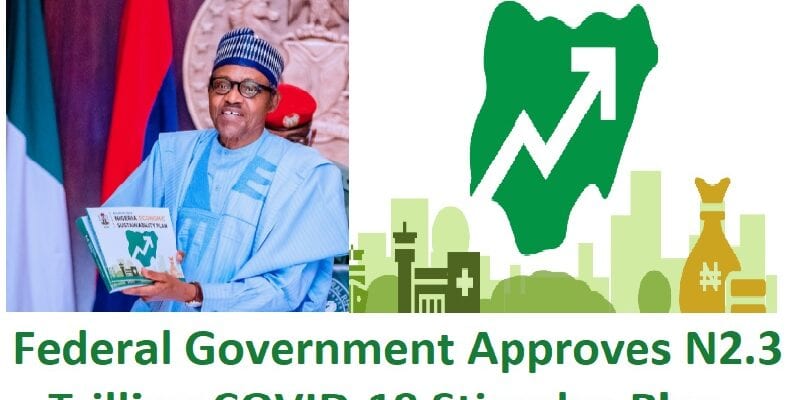Following the health and economic emergencies caused by the COVID-19 pandemic, Nigeria President, Muhammadu Buhari established the Economic Sustainability Committee (ESC) on March 30, 2020, to develop the COVID-19 Stimulus Plan, otherwise know as Nigeria Economic Sustainability Plan 2020, for Nigerians.
The total sum for the plan is put at N2.3 trillion, N500billion of this is a stimulus package that is already provided for in the amended in the 2020 Appropriations Act. These are funds that we have sourced from special accounts.
N1.2 trillion of the funds to be sourced as structured low-cost loans which are intervention from the Central Bank of Nigeria as well as other development partners and institutions
According to the committee, they “decided that the best way to beat the triple problem of very low foreign exchange, huge unemployment and negative growth is by focusing on Mr. President’s mantra to produce what we eat and eat what we produce.
This meant focusing on agriculture, increasing the acreage under cultivation and engaging thousands of young people in farming and agro-allied jobs, with a scheme for guaranteeing off-take of farm produce. This ensures that farmers are assured of an income. Other signature programmes include mass social housing, using local materials, installing solar power in 5 million homes, and providing assistance to daily-paid and self-employed workers – petty traders, artisans like bricklayers, vulcanisers, and electricians as well as commercial drivers and barrow-pushers.
Many businesses have suffered severe losses due to the lockdowns and have had to decide on laying off staff, we have developed a strategy to ensure that as many as possible do not collapse and are able to retain their staff.
For other businesses – aviation, hotels, private schools, restaurants, finding it difficult to continue making loan repayments to banks, we have developed a scheme for the restructuring of their loans. For the extremely poor and vulnerable, we have increased support available under the Social Investment
Programme.

